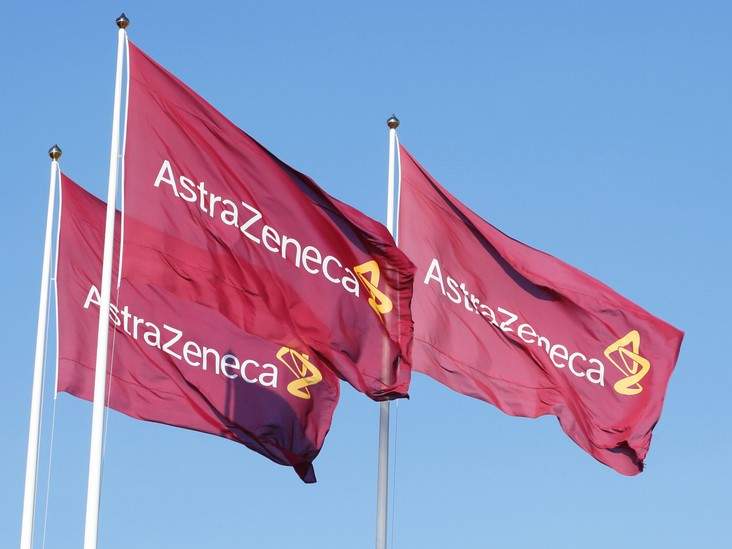
AstraZeneca has announced new medicines and emerging markets have driven its growth in the first half (H1) of 2018. This has been partially offset by the loss of Crestor exclusivity in Europe and Japan.
The company’s eight new medicines experienced a combined 75% sales growth and emerging markets grew 14% in the six months to 30 June 2018.

Discover B2B Marketing That Performs
Combine business intelligence and editorial excellence to reach engaged professionals across 36 leading media platforms.
Emerging markets was the largest region for product sales in H1. Notably, China, which represents 57% of all sales in the region, experienced a 33% sales growth to $1.9bn. This was primarily underpinned by the launch of oncology medication Tagrisso in the country; oncology sales increased 57% to $403m and sales of new medicines in the region rose by 24% in H1.
Oncology, which includes four of the new medicines, had 42% sales growth to $2,664m in the half. Lynparza grew 132% to $269m driven by the drug’s rising use as a treatment for ovarian cancer, a new approval for use in breast cancer and very strong performance in Japan following its launch in the second quarter (Q2) 2018.
Tagrisso experienced 89% sales growth to $760m as a result of its increasing use as a treatment for second line epidermal growth factor receptor (EGFR) T790M-mutated non-small cell lung cancer (NSCLC) and a new approval for first line ECFR-mutated NSCLC.
Calquence reached $20m in sales in the half year following its approval and launch in the US in October 2017 for relapsed mantle cell lymphoma. Imfinzi, which is indicated for unresectable, stage III NSCLC, achieved $184m in sales due to ongoing launches.

US Tariffs are shifting - will you react or anticipate?
Don’t let policy changes catch you off guard. Stay proactive with real-time data and expert analysis.
By GlobalDataNew cardiovascular, renal and metabolism (CVRM) products, which includes two new medicines, experienced a 12% increase in product sales to $1.9bn. Sales of Brilinta grew 23% to $609m globally, 22% in emerging markets to $148m, 20% in the US to $259m and 27% in Europe to $172m. This growth was due to the drug’s continual penetration in acute coronary syndrome and high-risk periprocedural myocardial infarction field.
Farxiga experienced a 40% growth in sales to $639m globally and 57% in emerging markets to $157m. This was driven by the medicine consolidating its blockbuster status.
The respiratory sector, which includes two new medicines, experienced 6% growth to $2.4bn. Sales of Fasenra totalled $86m driven by it consolidating its leadership position among asthma medications and strong sales in Japan.
Bevespi was the worst performing of the new medicines. Its product sales totalled $13m since its launch in the US in the first quarter of 2017, however, its growth has been slower than anticipated.
AstraZeneca chief executive officer Pascal Soriot said: “The performance in the first half demonstrated that we remain firmly on track to return our company to product sales growth in 2018.
“Our new medicines performed strongly and have established themselves as major drivers of product sales, including Lynparza, Tagrisso and Imfinzi in Oncology, Brilinta and Farxiga in CVRM and Fasenra in Respiratory. Emerging Markets, led by China, delivered double-digit growth.
“The pipeline also continued to deliver; in Oncology, strong results were achieved by Lynparza in first-line ovarian cancer and Imfinzi showed an overall-survival benefit for patients in earlier-stage lung cancer, while a number of approvals were granted, including for Lokelma in hyperkalaemia.
“AstraZeneca’s rich pipeline and sharp commercial focus make us confident that we have in place the right conditions for our return to growth this year.”
The company also reported a 1% decline in revenue to $10.3bn and a 2% increase in product sales to $10.02bn in its H1 2018 financial results. Its reporting operating profit declined 21% to $1.5bn, however, reporting income and expenses, excluding research and development and selling, general and administrative expenses, increased 29% to $1.1bn.
AstraZeneca also announced its first interim dividend remains at $0.90 per share and its guidance for the full year remains the same.




